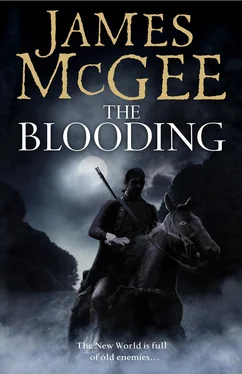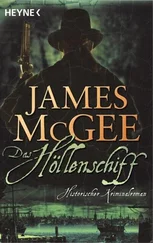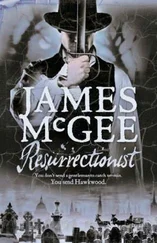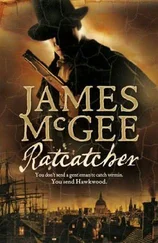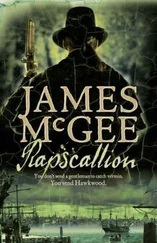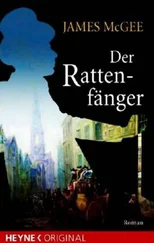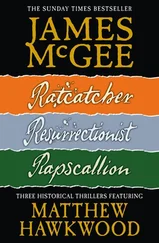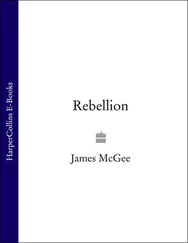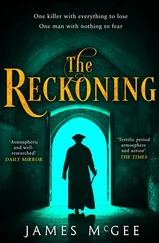1 ...7 8 9 11 12 13 ...28 Quade extended his injured limb and resumed kneading the muscle above his knee. “We left a thousand men behind. It wasn’t a retreat, it was a rout, plain and simple. No other word for it.”
The major had long legs. He was equal to Hawkwood in height and about the same age, give or take a year, though his dark hair was shorter, cut back from a widow’s peak and greying at a faster rate. There was also a gaunt aspect to his features, which, Hawkwood thought, could have been due to his injury. Or it could have been from the trauma of reliving his ordeal. That might also have accounted for the haunted look in his eyes.
It occurred to Hawkwood that the more the major drank, the more his looks matched his mood. For while the alcohol appeared to be having little effect on either his balance or his vocabulary, it grew apparent that he was becoming more morose with each sip. Hawkwood suspected that if Quade were to drink to excess he would not be a happy drunk.
Men like Quade were nothing new; officers unwilling to accept their own failings while finding constant fault with others, usually men of a more senior rank. Though if half of what Quade had told him was true, it was small wonder the man was feeling bloody. The American army appeared to be in a sorry state, with a lack of experienced soldiers of all ranks, not to mention supplies and weaponry and even horses for their recently created dragoon regiments.
According to Quade, some enlisted men were having to fight in bare feet because there was a shortage of boots. The major’s own uniform jacket was brown and not the regulation blue because there was a dearth of indigo cloth.
Hawkwood tried to imagine what the British army would do if there wasn’t enough scarlet weave. It didn’t bear thinking about. But then, until this latest conflict, the Americans hadn’t been involved in a war on home soil since gaining their independence. Little wonder they were at a disadvantage when they were trying to rebuild their army.
The major was from Virginian military stock. It had been the young Quade’s intention to study artillery and engineering at Fort Clinton, until his father advised him that a new professional army was being formed to combat the threat from the north-western Indian tribes who, a year previously in a bloody battle on the Wabash River, had inflicted the greatest defeat upon the United States Army by a native foe. Quade had been one of the United States Legion’s first recruits.
“We got our revenge at Fallen Timbers,” he told Hawkwood. “They had no option after that. They had to sign the damned peace treaty.”
Hawkwood presumed that Fallen Timbers was a battle the Indians had lost. Quade obviously expected him to know about it. Probably best, Hawkwood thought, to remain silent and not disabuse the major of that particular notion.
The Mullahs Quade had referred to were the Berber Muslims. Hawkwood didn’t know much about them either, though he did recall Larkspur ’s skipper referring to a war the Americans had fought in the Mediterranean some seven or eight years before against North African pirates.
Following the Legion’s disbanding, Quade had switched his allegiance to the newly resurrected Marine Corps. The Corps had been looking for officers and with the Legion’s mission against the tribes fulfilled, Quade had seen an opportunity for advancement. Since then, by his own admission, the variety of enemy he’d fought against had exceeded that of his father and grandfather.
The major shook his head wearily. “If I’d had any sense, I’d have ignored the call. My ship was in Boston when I heard they were in need of serving officers. Men with experience of engaging with irregulars were especially in demand. I guessed that with my time in the Legion and fighting the Berbers, I had what they were looking for, so I offered my services.”
He gave a rueful smile. “Saw it as the lesser of two evils, my chance to get back to dry land. I’m no sailor, damn it. I always was prone to sea-sickness. Not so good for a Marine, as I’m sure you’ll agree.” He massaged his knee once more. “And look where it got me. That damned river was freezing; it’s a wonder I didn’t come down with pneumonia.”
After his wounds had been treated, Quade was transferred to the hospital at Buffalo, where he’d spent the bulk of his recuperation. With the Americans’ push to invade Canada along the Niagara having stalled, Major Quade had received orders summoning him back to Albany.
“The fact is; I can’t say that I’m looking forward to reporting in,” Quade said quietly, his voice dropping to a whisper, as though he’d suddenly become aware, following his previous indiscretions, that walls could have ears.
“I’m not sure Dearborn’s cut out for command any more than Van Rensselaer was. He’s as old as Methuselah, for a start!” He looked into the fire, staring into the flames for several seconds before pulling back and favouring Hawkwood with a wintry smile. “But you didn’t hear me say that. Forgive me; I’ve a tendency to ramble when I’ve had a few. I meant nothing by it. I dare say you’ll be making your own judgement when the time comes.”
As far as the major was concerned, Captain Hooper was newly arrived from the continent where he’d been on extended service, most recently in Nantes, France, there having undertaken a number of unspecified duties on behalf of a grateful United States Government. Now he was in Albany, awaiting orders from the War Department, on the understanding that he was likely to be assigned to General Dearborn’s Northern Command Headquarters, where his intimate knowledge of British military tactics could be put to strategic use in the current hostilities.
Hawkwood knew that, as masquerades went, it was tenuous at best and downright dangerous at worst, but as his liaison with Quade was only scheduled to last as long as a couple of drinks, hopefully it would suffice.
“It sounds,” Hawkwood said, in an attempt to move the conversation on, “as though the bastards have that part of the frontier sealed up tight. What about Ontario and the St Lawrence? I hear we’ve given a good account of ourselves there.”
Quade’s eyes flashed as he nodded in agreement. “Thanks to Chauncey! About time the bastards got a taste of their own medicine! Now they know what it’s like to be bottled up with nowhere to go!”
From his reading, Hawkwood knew that Commodore Isaac Chauncey, former Officer-in-Charge of the New York navy yard, was the newly appointed Commander-in-Chief of the Great Lakes Navy. Since his transfer to Sackets Harbor in October, the Americans had taken the war to the British with a vengeance. With their successful blockade of Kingston, it was now the United States who ruled the waves on Lake Ontario and the upper reaches of the St Lawrence, and not the Provincial Marine as had previously been the case.
“The Limeys need the Marine to help keep their supply routes open.” Quade said. “We sever those and hopefully we can wear the sons of bitches down. We’ve made a good start. They’re already having difficulty supplying their southern outposts. Once winter sets in, it’ll be impossible to move anywhere. Not that either side will want to, so both armies are going to be snow-bound until March, which means we’ll be ready for them come the thaw.”
Hawkwood manufactured a smile in support of Quade’s rekindled optimism. From the major’s point of view, the reversal of fortune following the Queenston and Detroit defeats was a much-needed boost to national morale, but all Hawkwood could see was the shutting down of his second prospective escape route.
Not that either option had held much appeal, due more to their geography than their military significance. It was four hundred miles to the Niagara frontier and at least two hundred to the St Lawrence, with each route involving a heavily defended river crossing at the end of it.
Читать дальше
